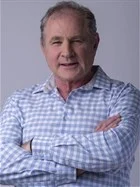
Subscribe & Follow
Advertise your job vacancies
Jobs
- Web Designer & Developer Pretoria
- Sales Representative - Mall Advertising East Rand
- Dotsure Brand Manager George
- Junior Copywriter and Proofreader Cape Town
- Mid- to Senior Graphic Designer Durban
- Senior Brand Designer Cape Town
- Designer Pretoria
- Senior Digital Designer Johannesburg, Cape Town
- Brand Assistant Cape Town
- Junior Graphic and Web Designer Pretoria
Promoted content
Authenticity - nine ways for brands to join the new revolution
Although a fast food experience is perfectly real, it is a shiny, ubiquitous one resulting in a superficial engagement between consumer and brand. David Boyle, in his book Authenticity, points out that "People increasingly want their experiences to be multidimensional, complex and slightly less than perfect, because that's what real life is all about..."
I'm not sure if he's ever faced an irate diner who wants to know why the steak isn't exactly like the photo, but being authentic - being real - can do lots for building a relationship.
Here are nine elements of authenticity for brands that want to deepen their relationship with consumers:1
1. Authenticity means ethical. Our lives have become morally fragmented, so we compensate by projecting morality onto our consumption - brands. Young women will pay a premium for eco-friendly cosmetics, even though they may never even have met an eco.
2. Authenticity means natural. Mankind has flexed its biceps, and is ready to move mountains and shift chromosomes. We can even photocopy a real sheep and call it Dolly. But consumers are now more impressed with your ability to deliver the 'natural' product the way it was meant to be. Whether the farmer has to run up and down the orchard with a fly swatter is beside the point. Not their problem - and they'll pay the premium for it.
3. Authenticity means honesty. The recent appearance of campaigns that admit poor service levels, the inadvertent addition of additives or prejudicial practice are not because they are happening more often - it just makes sense to be honest - today's market will vote for honesty over perfection.
4. Authenticity means simplicity. People feel under immense pressure, and any hint of complexity intimates that you're out of sync with their needs.
5. Authenticity means rooted. The UK is seeing the phenomenon of 'back-shifting', where half the population now lives within half an hour of where they were brought up. Heritage is important - there's a future in history.
6. Authenticity means talking up to people. That's how Gladstone could drone on for two hours to a spellbound audience standing in the rain - the longer he spoke, the greater their self-esteem. It also means that you have to stop lying. "Your call is important to us", could easily be interpreted as: "Look buddy, we have a gazillion customers paying us megabucks - you can hold in the vain attempt that someone will answer, but I suggest you just hang up and hope the problem goes away. Have a nice day".
7. Authenticity means choosing culture above consumption. When the Allies occupied Europe during the war, they chose not to transmit propaganda, but bombard the people with music and poetry - it was considered more powerful.
8. Authenticity is about a human face. People contact is the fuel of authenticity. Rather than a system that circumvents contact, a better solution would be one that facilitates contact.
9. Authenticity gives people a sense of something beyond just themselves. There is a bigger picture - neither you (the brand) or the consumer is at the centre of the universe. Victor Frankl, in Man's search for meaning, reflects on his ordeal in the concentration camp:2
"It did not really matter what we expected from life, but rather what life expected from us. We needed to stop asking about the meaning of life, and instead to think of ourselves as those who were being questioned by life - daily and hourly. Our answer must consist, not in talk and meditation, but in right action and in right conduct. Life ultimately means taking the responsibility to find the right answer to its problems and to fulfill the tasks which it constantly sets for each individual."
Being authentic can also provide real returns for both the brand and the individual. I leave the last few words to George Orwell, who wondered why more people weren't appreciating the cost-effective benefits of a real life. Perhaps we are now.
Is it politically reprehensible, while we are groaning under the shackles of the capitalist system, to point out that life is frequently worth living because of a blackbird's song, a yellow elm tree in October, or some other natural phenomenon which does not cost money and does not have what editors of the left wing newspapers call a class angle?
References:
1. Adapted from: David Boyle. Authenticity: Brands, Fakes, Spin and the Lust for Real Life. Harper Perennial, 2004.
2. Frankl, Viktor E., Man's Search for Meaning, Washington Square Press, Simon and Schuster, New York, 1963.














